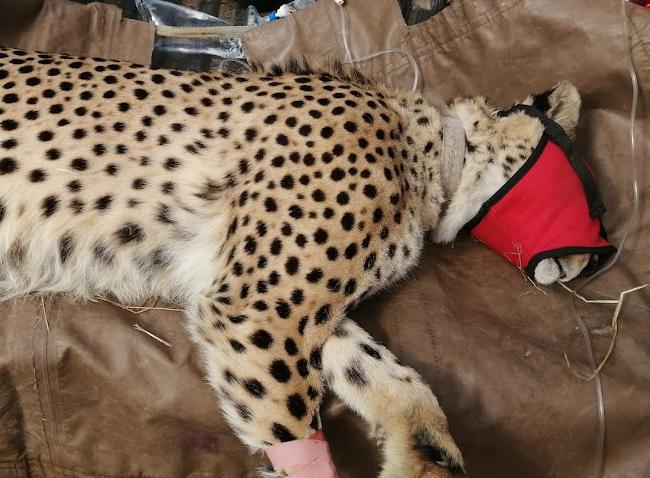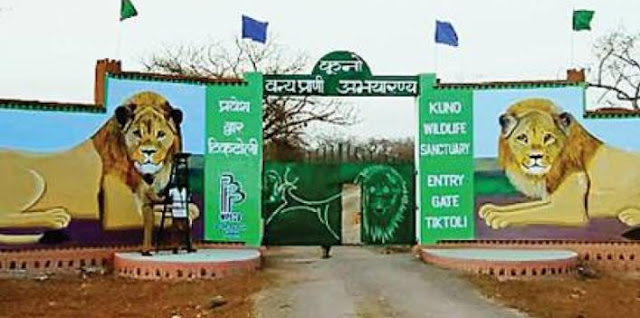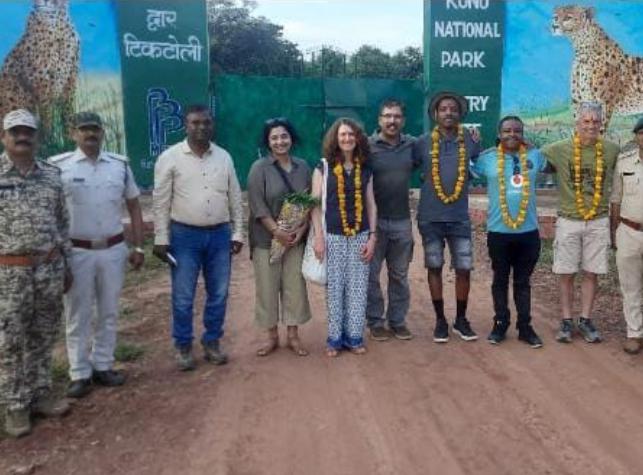[ad_1]
As cheetah versus lion debate goes on amidst cheetahs translocation to Kuno National Park in Madhya Pradesh. There are little over 7000 cheetahs spread across the continent of Africa in the reserves and most of them are double or triple or even more to the size of national parks of India. In contradiction, there are barely about 700 Asiatic lions found only in India that too in one region of its one state only -Gujarat .It’s like putting all your eggs in one basket. For a variety of reasons including scientific, cheetahs are being translocated to different countries, like in India, and even within Africa. Referring to cheetah project, Ravi Chellam , a very senior conservationist in India has commented ,” how can African priority has become Indian priority”.
Cheetah And Contraceptives
Professor Adrian Tordiffe, a veteran veterinarian from Pretoria University and a key man in cheetah translocation project, said, “ In South African we have the only growing population of cheetahs in the world and if we don’t export cheetahs now very soon , we have atleast 40 surplus animals per year and we will have to put the animals in our reserves on contraceptives because animals would have impact on other game species in those parks and that for me would be an absolute tragedy.”
Also read: South African Cheetahs to Arrive Kuno National Park in October
Tordiffe was participating South African Cheetahs to Arrive Kuno National Park in October in a programme – Bringing the Cheetah Back to India- on BBC radio in August this year. He said, ” Unfortunately we do not have any more new reserves coming on line and willing to take cheetahs so we have started some international reintroductions. We sent cheetahs to Malawi ,to Zambia , to Mozambique.”He said that cheetahs are a keystone and charismatic species that attracts funding and politicians”. Adrian also revealed that the project proponent ( for cheetah translocation) wanted to take cheetahs to Mukundura first but why they did not take them I don’t know. Mukundura tiger reserve is a tiger reserve in Rajasthan and one of the three sites selected for the translocation.
For Kuno, Lions Consign to History
Kuno National Park, named after river Kuno, was originally planned to have become the new home of the lion, a result of over a decade-long exercise by India wildlife scientists. But Gujarat always resisted. A prolonged court battle followed. Even a Supreme Court judgment in 2013 stating that Kuno should be prioritized for reintroducing Asiatic lions rather than cheetahs, did not work. Hoping against hope, for over two decades, walls on both sides of the main entrance gate of Kuno , had paintings of lions. They started fading with time . For Kuno, lion is consigned to history. They have been replaced by cheetah images welcoming the fastest animal on land, albeit, amidst alarm sounded by conservationists. They have many questions and reservations over the project. Their queries remained unanswered and reservations overlooked. “The worst enemies for conservation are conservationists,” Yadvendradev Jhala, dean of Wildlife Institute of India, the man overlooking the whole project has been quoted in National Geographic. “Once it’s done and people see the success of it, I think all of them will come around.”
Also read: Gujarat Lions Are Weak, Lack Vigor
Sometimes I wonder why there is so much difference of opinion between the independent wildlife scientists, conservationists and those in government jobs. Being government servants, they may be under pressure . Jhala as a wildlife scientist in his research paper on Asiatic Lion: Ecology, Economics and Politics of Conservation published in August 2019 in a journal “Frontiers in Ecology and Evolution” writes: Establishing a second free-ranging lion population away from Gir should be the most important conservation priority for the species. Kuno is an ideal option in a state that has a proven track record for tiger conservation.” Jhala shared this work with six other scientists.
Gujarat Adamant, MoEF&CC in Slumbers
Gujarat monopolized Gir lions after they were stripped off their status as India’s National Animal in 1973. Lions were promoted as a Gujarat state icon which soon became ingrained as a symbol of the pride of the people of Gujarat. A study also said that the local media exemplified and promoted this monopoly which was subsequently used as an instrument of political and bureaucratic gain. This new found exclusive ownership of the lions by Gujarat State and its bearing on the public psyche resulted in the Gujarat Government’s reluctance to provide a founder stock of wild lions to the state of Madhya Pradesh (Kuno). The Gujarat forest department, which is the technical arm of the State Government in matters of wildlife, posed trivial arguments against reintroduction of lions in Kuno, the research paper Ecology, Economics and Politics of Conservation said.
Also read: Jungle Book Comes Alive in Pench Tiger Reserve
In August 2020, the Centre launched a lion conservation programme along the lines of Project Tiger and identified six sites including two in Madhya Pradesh, three in Rajasthan and one in Gujarat for the relocation of the big cat. But now the government’s 25-year roadmap for Project Lion makes no mention of relocation.The Union ministry of forest, environment and climate change) MoEFC&C) in India also doesn’t seem to be bothered about finding a new home to the Asiatic lions outside Gujarat On the other hand, South Africa is dispersing African cheetahs across the world.
[ad_2]
Source link





